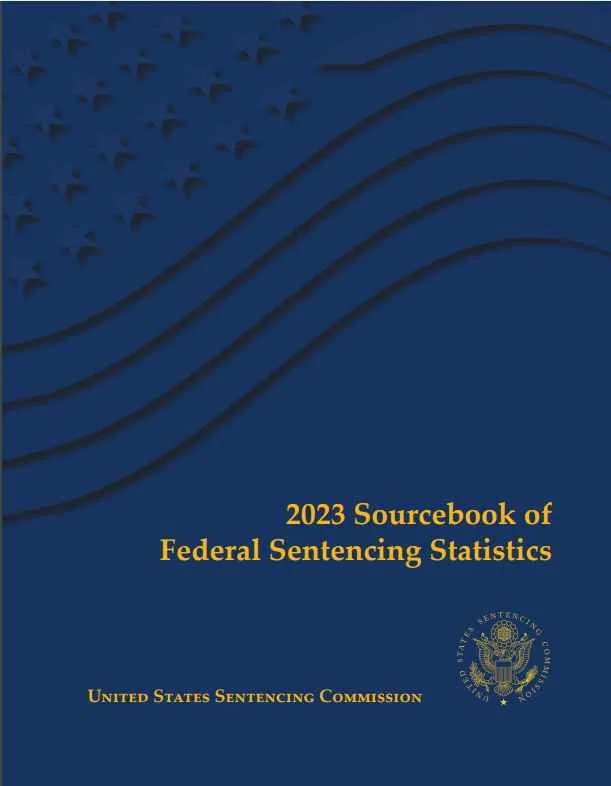Sourcebook of Federal Sentencing Statistics - 2023
By: The United States Sentencing Commission
This is the twenty-eighth edition of the United States Sentencing Commission’s Sourcebook of Federal Sentencing Statistics. This Sourcebook contains descriptive statistics on the application of the federal sentencing guidelines and provides selected district, circuit, and national sentencing data. The volume covers fiscal year 2023 (October 1, 2022, through September 30, 2023, hereinafter “2023”). This Sourcebook, together with the 2023 Annual Report, constitutes the annual report referenced in 28 U.S.C. § 997, as well as the analysis, recommendations, and accounting to Congress referenced in 28 U.S.C. § 994(w)(3). The Commission received documentation on 64,124 federal felony and Class A misdemeanor cases involving individuals sentenced in fiscal year 2023.[1] The Commission coded and edited information from the sentencing documents in these cases into its comprehensive, computerized data collection system.
The Commission first released sentencing data in its 1988 Annual Report and reported this data annually until 1996. That year, the Commission compiled sentencing data into a new publication, the Sourcebook of Federal Sentencing Statistics. In 2019, the Sourcebook edition reporting fiscal year 2018 data was substantially revised and expanded. Existing tables were revised to reflect current sentencing practices. Many figures were updated to make them easier to understand and were presented in color while others were removed and the data on them presented in new ways. Additional analyses regarding drug and immigration crimes were added, and new sections on firearms and economic offenses were included. Trend analyses were added to each of the major sections to show how sentencing patterns had changed over the last ten years. The section on Sentenced Organizations was also expanded. Finally, Appendix B, which provides sentencing data for each judicial district, was completely redesigned to reflect current sentencing practices.
Beginning with that 2018 Sourcebook, important methodological changes were made in the way the data was presented. Principal among them was the way cases were assigned to a “type of crime” (previously called offense type). Beginning with fiscal year 2018 data, the guideline (or guidelines) that the court applied in determining the sentence determines the crime type category to which a case is assigned. Also, the names of some of the crime type categories were revised and some outdated categories were removed from the tables and figures. Another important methodological change was that sentences were capped at 470 months for all analyses. Additionally, cases involving the production of child pornography were reassigned to the sexual abuse crime type. Previously, these cases were assigned to the child pornography offense type in the Sourcebook.
Finally, beginning with the 2018 Sourcebook, the methodology used to analyze the sentence imposed relative to the sentencing range for the case as determined under the Commission’s Guidelines Manual was substantially revised. Sentences now are grouped into two broad categories: Sentences Under the Guidelines Manual and Variances. The former category comprises all cases in which the sentence imposed was within the applicable guideline range or, if outside the range, where the court cited one or more of the departure reasons in the Guidelines Manual as a basis for the sentence. Variance cases are those in which the sentence was outside the guideline range (either above or below) and where the court did not cite any guideline reason for the sentence. Data for important subgroups within these two categories are also reported.
Because of these methodological changes, direct comparisons between data for Sourcebooks from fiscal year 2018 and later years cannot always be made to data reported in the Sourcebook for years before fiscal year 2018.
Washington, DC: USSC, 2024.


